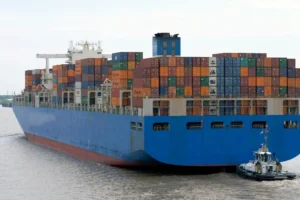In the realm of global trade, the smooth and efficient movement of goods is vital for economic success. Freight companies and freight forwarders are integral to this process, each playing distinct roles in ensuring that products are transported and delivered effectively. This article provides a comprehensive look at what a freight company is, how it differs from a freight forwarder, and the services both provide.
What is a Freight Company?
A freight company is a specialized organization dedicated to the transportation of goods from one location to another. These companies handle a wide range of logistics functions, focusing on the movement and management of cargo. They are involved in various transportation modes, including road, rail, sea, and air. Freight companies ensure that goods are transported efficiently, securely, and in compliance with all relevant regulations.
The core function of a freight company is to manage the physical movement of cargo. This involves arranging for the transportation of goods, whether by truck, train, ship, or aircraft. Additionally, many freight companies offer warehousing services, which involve storing goods temporarily before they are shipped to their final destinations. They also handle customs brokerage, managing the complex documentation and regulatory requirements for international shipments.
Freight companies can be categorized based on the modes of transport they specialize in. Road freight companies focus on trucking services, rail freight companies use trains to move cargo, sea freight companies manage ocean shipments, and air freight companies handle air cargo. Each type of freight company offers specific services tailored to its mode of transportation.
The Difference Between a Freight Company and a Freight Forwarder

Understanding the distinction between a freight company and a freight forwarder is crucial for businesses involved in logistics. While these terms are sometimes used interchangeably, they refer to different aspects of the shipping process.
A freight forwarder serves as an intermediary between shippers and carriers. They play a vital role in coordinating the logistics of shipping, which includes booking cargo space with carriers, managing the transportation process, and handling all necessary documentation.
Freight forwarders are experts in navigating the complexities of international shipping and customs regulations. They provide valuable services such as logistics planning, cargo consolidation, and customs clearance, making the shipping process more efficient for their clients.
In contrast, a freight company is more focused on the direct transportation of goods. Freight companies own or operate the transportation equipment needed to move cargo, such as trucks, ships, trains, or planes. Their primary responsibility is to ensure that goods are physically transported from the point of origin to the destination. While freight companies may offer additional services such as warehousing and customs handling, their main function is the actual movement of goods.
Services Offered by Freight Companies
Freight companies offer a range of services designed to facilitate the efficient transportation of goods. Their core service is transportation, which involves moving cargo via various modes, including road, rail, sea, or air. Each mode has its advantages, with road transport being ideal for short to medium distances, rail transport suitable for large volumes of goods, sea freight being cost-effective for international shipping, and air freight being the fastest option for urgent deliveries.
In addition to transportation, many freight companies provide warehousing services. This involves storing goods in a secure facility before they are dispatched to their final destination. Warehousing services often include inventory management, where the company tracks and organizes stored goods, and order fulfillment, which involves preparing and shipping orders to customers.
Customs brokerage is another critical service offered by freight companies, especially for international shipments. Freight companies handle the necessary paperwork and ensure compliance with customs regulations, which can be complex and vary by country. This service helps to avoid delays and ensure that goods clear customs smoothly.
Some freight companies also offer additional logistics services, such as packaging, which involves preparing goods for safe transport, and supply chain management, which focuses on optimizing the entire supply chain process from procurement to delivery.
How Freight Companies Operate
The operation of a freight company involves several key processes. The journey typically begins with booking and coordination, where shippers provide details about their cargo, including its nature, volume, and destination. The freight company then arranges the appropriate mode of transport based on these details.
Documentation and compliance are crucial aspects of freight company operations. The company prepares all necessary shipping documents, such as bills of lading and customs declarations, and ensures that all regulatory requirements are met. This step is essential for both domestic and international shipments, as it helps to prevent delays and legal issues.
Tracking and delivery are also important components of the freight company’s operations. Many companies offer tracking services that allow shippers and recipients to monitor the progress of their shipments in real-time. Once the cargo reaches its destination, the freight company coordinates the final delivery, ensuring that the goods are safely and promptly handed over to the recipient.
Why Choose a Freight Forwarder?
Freight forwarders offer numerous advantages that can significantly benefit businesses involved in shipping. One of the primary reasons to choose a freight forwarder is their expertise in handling complex shipping and logistics processes. Freight forwarders have extensive knowledge of international shipping regulations, customs procedures, and logistics planning, which can simplify the shipping process and reduce the risk of errors and delays.
Efficiency is another key benefit of working with a freight forwarder. They streamline the shipping process by managing all aspects of logistics, from booking cargo space to handling documentation and customs clearance. This can lead to faster and more reliable deliveries, as well as cost savings for businesses.
Freight forwarders are also skilled in negotiating rates and providing cost-saving solutions. Their industry connections and experience enable them to secure better shipping rates and offer consolidated shipping options, which can reduce overall transportation costs.
In addition, freight forwarders provide comprehensive solutions that encompass all aspects of the shipping process, from initial planning to final delivery. This integrated approach helps businesses manage their logistics more effectively and ensures a smoother shipping experience.
Choosing the Right Freight Company

Selecting the right freight company is crucial for ensuring efficient and reliable shipping. When evaluating potential freight companies, it is important to consider their reputation and track record. Researching customer reviews and industry reputation can provide valuable insights into the company’s reliability and service quality.
The range of services offered by the freight company is another important factor. Ensure that the company provides the specific services you need, such as transportation, warehousing, and customs brokerage. It is also helpful to choose a company with expertise in handling your particular type of cargo or shipping requirements.
Cost is a significant consideration when choosing a freight company. Compare quotes from different providers and assess the value of their services relative to the cost. It is important to find a balance between cost and service quality to achieve the best overall value.
Technological capabilities are also worth evaluating. Look for companies that offer advanced tracking tools and automation features, which can enhance the efficiency and accuracy of the shipping process. These technologies can provide real-time updates and streamline logistics management.
The Future of Freight Companies and Forwarders
The logistics industry is continuously evolving, driven by technological advancements and changing market demands. One of the key trends shaping the future of freight companies and forwarders is digital transformation. The adoption of digital tools and technologies, such as online tracking systems and automated logistics platforms, is enhancing the efficiency and transparency of the shipping process.
Sustainability is another growing focus in the logistics industry. Companies are increasingly adopting environmentally friendly practices, such as using alternative fuels and optimizing transportation routes to reduce carbon emissions. Green logistics initiatives aim to minimize the environmental impact of shipping and contribute to more sustainable supply chains.
Innovation is also playing a significant role in the future of freight management. Emerging technologies, such as blockchain and artificial intelligence, are transforming the logistics landscape. Blockchain technology offers enhanced transparency and security for supply chain transactions, while artificial intelligence is improving logistics planning and decision-making.
Understanding the roles of freight companies and freight forwarders is essential for navigating the complexities of shipping and logistics. Freight companies are responsible for the physical movement of goods, while freight forwarders provide crucial coordination and expertise.
By selecting the right partners and staying informed about industry trends, businesses can optimize their logistics operations and ensure the efficient delivery of their products. Whether you are shipping domestically or internationally, partnering with the right freight company or forwarder can make a significant difference in the success of your logistics strategy.








